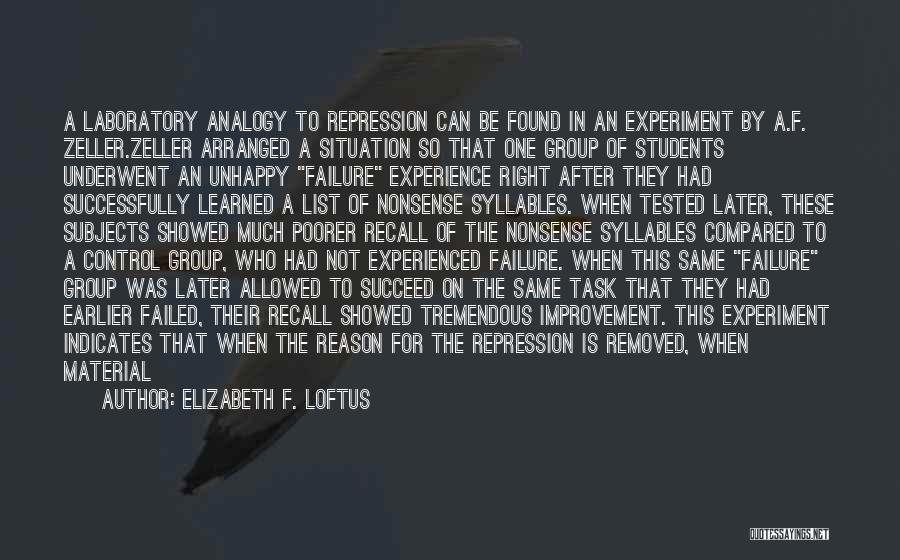Elizabeth F. Loftus Quotes & Sayings
Enjoy the top 5 famous quotes, sayings and quotations by Elizabeth F. Loftus.
Famous Quotes By Elizabeth F. Loftus

Most of the time, perhaps 99 percent of the time, the defendant is guilty; his screams are the final protest of a human being about to lost his most precious possession, his freedom. — Elizabeth F. Loftus

According to the most outspoken and vituperative Skeptics, therapists specializing in recovered memory therapy operate in a neverland of fairy dust and mythic monsters. Woefully out of touch with modern research, engaging in "crude psychiatric analysis," guilty of oversimplification, overextension, and "incestuous opinion citing," these misguided, undertrained, and overzealous clinicians are implanting false memories in the minds of suggestible clients, making "therapeutic lifers" out of their patients and ripping families apart. This — Elizabeth F. Loftus

[M]any people believe that memory works like a recording device. You just record the information, then you call it up and play it back when you want to answer questions or identify images. But decades of work in psychology has shown that this just isn't true. Our memories are constructive. They're reconstructive. Memory works a little bit more like a Wikipedia page: You can go in there and change it, but so can other people. — Elizabeth F. Loftus

A laboratory analogy to repression can be found in an experiment by A.F. Zeller.
Zeller arranged a situation so that one group of students underwent an unhappy "failure" experience right after they had successfully learned a list of nonsense syllables. When tested later, these subjects showed much poorer recall of the nonsense syllables compared to a control group, who had not experienced failure. When this same "failure" group was later allowed to succeed on the same task that they had earlier failed, their recall showed tremendous improvement. This experiment indicates that when the reason for the repression is removed, when material to be remembered is no longer associated with negative effects, a person no longer experiences retrieval failure. — Elizabeth F. Loftus






